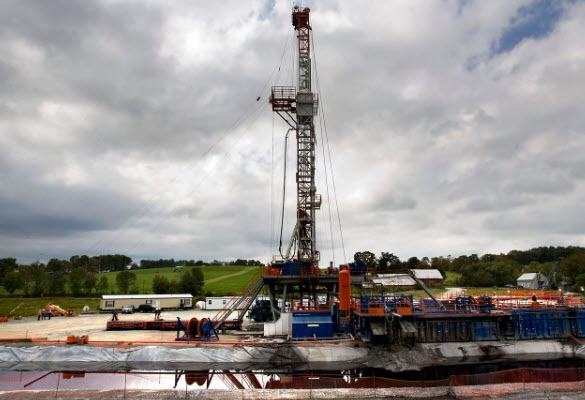ENB Pub Note: This is an excellent article from Irina Slav on Oilprice.com. While the title says advertisers are returning to big oil, I would add investors to the list. I have written several articles about the lack of investor returns in Green Energy, and the full commitment and delivery of billions back to shareholders in oil and gas.
- Advertising firms are following banks in retreating from net-zero commitments, prioritizing business with Big Oil.
- Financial realities and AI disruption are pushing agencies to secure reliable, high-paying clients in the energy sector.
- The shift highlights a growing gap between climate pledges and industry survival strategies.
Like financial services, advertising and marketing have been at the forefront of the net-zero push, making emission reduction commitments and demonstrating a readiness to pressure the energy industry to decarbonize. Also, like financial services, ad and marketing firms are backpedaling from net zero and eager to get Big Oil’s business.
Are you Paying High Taxes in New Jersey, New York, or California?
The Financial Times reported this week that advertisers are going the way of bankers in rephrasing their decarbonization messaging on websites and rediscovering the energy industry as a client – a well-paying one. The standard go-to explanation is, of course, President Trump and his anti-net-zero rhetoric and policies. Yet it seems that a much bigger reason for the pullback is simply money. Like banks before them, advertisers and marketers are discovering that the energy industry makes money and doesn’t mind paying generously for advertising.
The FT cited data from a climate campaign organization called Clean Creatives showing that advertising and PR agencies had boosted the number of contracts with their energy industry clients over the past 12 months. The trend strongly suggests a developing realization that net-zero campaigning is all very well, but it does not really pay the bills. Had it been otherwise, the ad industry—and bankers—would have stopped doing any business with Big Oil.
What actually happened was that banks started pulling out of net-zero organizations. It is a fact that the Trump administration had a lot to do with it, as did Republican state governments before Trump became president. The saga began back in 2022, when Texas passed legislation forbidding state agencies from investing in any of a number of companies that, the state’s government said, boycotted the oil and gas industry. The black list of such companies included many Wall Street heavyweights eager to get a piece of the energy transition business.
Other states also slammed banks and asset managers for their newfound investment pickiness and took measures similar to Texas. Banks and asset managers rushed to defend themselves—even as they continued insisting on their net-zero commitments that inevitably involved a reduction and a following exit from oil and gas. Only it never came to that.
The “reality is that for quite some time, fossil fuels will be with us,” the chief executive of Barclays told Bloomberg last year, even though the bank had made a pledge to completely suspend financing for oil and gas projects—but only new ones. The financial industry, CS Venkatakrishnan said at the time, “cannot go cold turkey” on hydrocarbons.
The pushback against what banks called sustainable investing did a lot to change their perspective on the energy transition—and their fiduciary duty, which is to make money for their clients, not force them to cut their emissions. Now, advertisers are following the same path for pretty much the same reasons. Banks have discovered that investments in emission-reduction, carbon credits, and what transition proponents call climate tech do not pay as well as expected and, indeed, in some cases, it does not pay at all. Now, advertisers are discovering that artificial intelligence is encroaching on their territory and they need paying clients.
According to the FT report—and the Clean Creatives outlet—the ad industry’s rediscovery of the importance of making money has led to a change in marketing messaging for the energy industry that, the report implies, is inconsistent with net zero efforts. “Marketing spend is shifting towards making them seem [oil and gas] inevitable and vital,” the executive director of Duncan Meisel told the FT.
It is a fact that net-zero pundits resent the notion that oil and gas are indeed inevitable and vital for modern human civilization. In fact, some of those pundits acknowledge this, especially those involved in electricity generation. Every winter, the northern hemisphere gets a reminder of just how indispensable hydrocarbons are for securing power and heating once the wind dies down and the sun moves past its peak power generation period.
Ultimately, however, it is about survival. “Advertising is struggling — so all business is being considered,” one industry insider told the Financial Times. AI is turning into a substantial challenge for advertisers and marketers, threatening to render the industry unnecessary. “AI is going to make all the world’s expertise available to everybody at extremely low cost,” Mark Read, the former head of WPP, said earlier this year. “The best lawyer, the best psychologist, the best radiologist, the best accountant, and indeed, the best advertising creatives and marketing people often will be an AI, you know, will be driven by AI.”
In response to that challenge, the ad industry is, first, finding ways to use AI itself, and, two, securing all the business it can secure to ensure its longer-term survival. It so happens that oil and gas majors have the money, and companies such as Ørsted don’t have the money, because oil and gas are indeed inevitable and vital and will remain so until such energy technology is developed that has all the pros of hydrocarbons with none of their drawbacks.
By Irina Slav for Oilprice.com
Avoid Paying Taxes in 2025
Crude Oil, LNG, Jet Fuel price quote
ENB Top News
ENB
Energy Dashboard
ENB Podcast
ENB Substack

